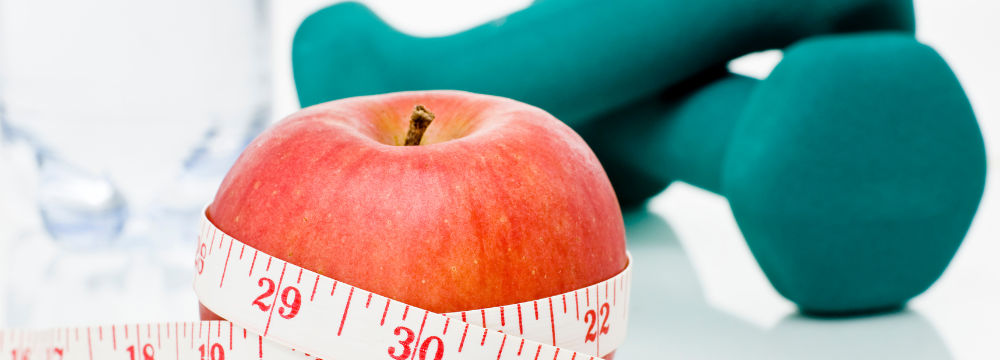After Bariatric Surgery
Whether you are a bariatric patient or not, diet and exercise are vital components of any weight loss program. But while the concept of simple calories in versus more calories out for weight loss is true, it does not tell the whole story. Diet and exercise contribute to weight loss and improved health in different ways.
The Benefits of a Proper Diet
Restricting your calories is the fastest way to begin the weight loss process. For example, not drinking that can of Coke will save you upwards of 140 calories, which would require 30 minutes of walking to burn off. For rapid weight loss, calorie restriction always beats calorie burn through exercise (as far as effort goes). However, the metabolism adapts when our bodies go into a caloric deficit. It is important to moderate your caloric restriction to avoid a metabolic adaptation that slows your metabolism and creates a weight plateau. The body is not designed to take in too few calories, and as such, it adjusts metabolism lower as a protective mechanism. This will become especially apparent several months after bariatric surgery.
Further, as we lose weight, our bodies will require fewer and fewer calories. That means if you are 200 pounds today and need approximately 2500-2700 calories based on your age, muscle build, and activity level, dropping 20 pounds may reduce your caloric requirement by a couple hundred a day, for example. You can find caloric intake estimation tools online to show approximately how many calories you should consume during your weight loss journey.
Enter Exercise, the Long-Term Weight Loss, Hero
Exercise is also important because it burns calories. Still, as we mentioned above, caloric burn is far more challenging than simply eliminating those calories from your diet in the first place. So, what is exercise good for? Plenty!
First, cardiovascular exercises, for example, rowing, running on the treadmill, stationary, bicycle, and more, are all excellent for your heart, as the name suggests. The heart is a muscle that needs to be worked out, just like any other in the body, to maintain its long-term health.
Exercise also prompts the secretion of feel-good endorphins. These hormones are released into the body to make us feel better, reduce pain, and give us more motivation to push through the workout.
Strength training is also a cornerstone in any exercise routine, and many pre-and post-bariatric patients often overlook it. Strength training, whether at home or in the gym, using free weights or body weight builds muscle tone. Muscle tone is fundamental during weight loss as the body tends to burn muscle mass during a significant caloric deficit. Muscle mass also reduces the cosmetic appearance of hanging or loose skin. Lastly, muscle burns calories, even at rest, so as you build strength, your caloric burn increases without lifting a finger.
Remember that early in your exercise regimen, your weight loss may moderate, or you may even gain some weight. Muscle is heavier than fat, and during this early period, you’re putting on more muscle mass than the weight you’re losing.
The Bottom Line
As you can see, there is an important symbiotic relationship between diet and all forms of exercise after weight loss surgery or in any weight loss program, surgical or not. But it’s critical to remember that any diet and exercise program must be performed in moderation. We often caution people about overeating or exercising too little, but there is also a trap in eating too little and exercising too much. Ultimately, your diet and exercise program needs to be sustainable for the long term, which certainly can be the case if you stay focused. Often, these journeys are made easier and more effective by having a family member or friend join you. Going at it alone can be challenging.
A Note on Not Feeling Hungry After Surgery
Many patients will not feel much hunger after surgery. This is especially true for gastric sleeve and duodenal switch patients with the fundus of their stomach removed and the primary production center of the hormone known as ghrelin. Again, these patients need to receive their proper macro and micronutrients to ensure continued health and avoid deficiencies, muscle wasting, and complications after surgery.
A Further Note on Hydration
Proper exercise and dieting are much harder to stick to if you’re not adequately hydrated. Dehydration is one of the most common reasons for readmission to the hospital after a bariatric procedure. Make sure you are hydrating according to your post-op instructions.
We look forward to being by your side as you embark on these exciting new challenges to improve your health. For any questions, feel free to contact us.










